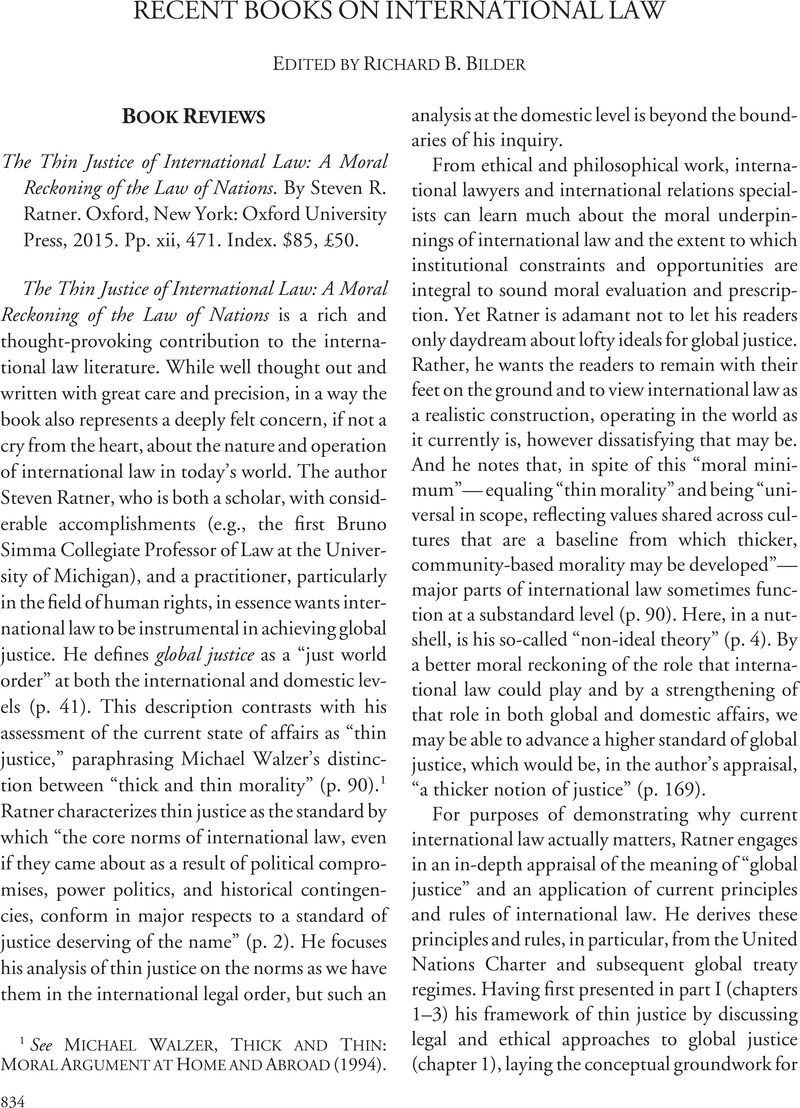No CrossRef data available.
Published online by Cambridge University Press: 29 March 2017

1 See Michael Walzer, Thick and Thin: Moral Argument Athome and Abroad (1994).
2 Declaration on Principles of International Law Concerning Friendly Relations and Co-operation Among States in Accordance with the Charter of the United Nations, GA Res. 2625 (XXV), annex (Oct. 24, 1970).
3 2005 World Summit Outcome, GA Res. 60/1, para. 4 (Sept. 16, 2005).
4 Id., paras. 4, 5.
5 Johan Galtung, Violence, Peace, and Peace Research, 6 J. Peace Res. 167, 183 (1969).
6 Universal Declaration of Human Rights, GA Res. 217A (III), UN GAOR, 3d Sess., Resolutions, at 71, UN Doc. A/810 (1948).
7 E.g., International Covenant on Civil and Political Rights, Dec. 16, 1966, 999 UNTS 171; International Covenant on Economic, Social and Cultural Rights, Dec. 16, 1966, 999 UNTS 3.
8 See Rio Declaration on Environment and Development, UN Doc. A/CONF. 151/5/Rev.1 (June 13, 1992), 31 ILM 874 (1992); Nico J. Schrijver, The Evolution of Sustainable Development in International Law: Inception, Meaning and Status (2008).
9 See Edith Brown Weiss, in Fairness to Future Generations: International Law, Common Patrimony, and Intergenerational Equity (1989); Peter Lawrence, Justice for Future Generations: Climate Change and International Law (2014).
10 Paris Agreement, UN Doc. FCCC/CP/2015/L.9/ Rev.1 annex (Dec. 12, 2015), available at http://unfccc.int/files/essential_background/convention/application/pdf/english_paris_agreement.pdf; see also Bodansky, Daniel, The Paris Climate Change Agreement: A New Hope?, 110 AJIL 288 (2016)CrossRefGoogle Scholar.
11 See World Commission on Environment and Development, Our Common Future 43 (1987).